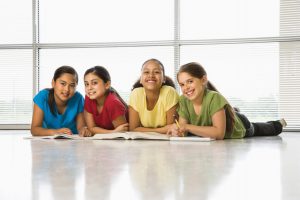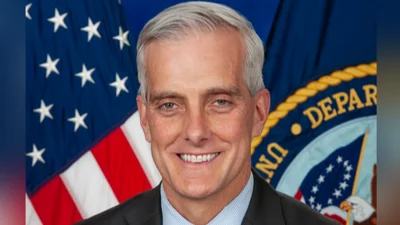Maryland State Department of Education issued the following announcement on Sept. 13.
Sarah Desrosiers, M.Ed., Charles County Teacher of the Year, 2015-2016
Today’s children need so much more than we did when we went to school. Society has changed and so have family dynamics. As teachers, we need to understand the entire child in order to teach effectively. Kids now come into our classrooms with big issues and huge struggles. They come in with low self-esteem, trust issues, mental illnesses, depression, anxiety, and possibly an empty belly. Their family life may be in turmoil or they may be a victims of bullying. Yet as they sit in front of us, we expect them to soak up the knowledge that we are putting forth… and we wonder why those students are not learning. No, we can’t cure all the ills of our society. However, we can have a positive impact on our students.
I like to ask my colleagues “Why did you become a teacher?” The responses are pretty much the same: “I love kids!” and/or “I had a great teacher when I was growing up and want to be the same.” What made that teacher special, amazing, phenomenal? Why do you remember that teacher? You remember that teacher because he/she built a relationship with you. They showed you that they cared about you and your well-being. They treated you as their own child, probably firm but fair, with love and respect.
I feel as though when we are home and thinking about the big picture, that’s what we say, “I love kids, I want to be that teacher that changes lives.” Sometimes when we walk into school and get to our classrooms we forget that. We don’t forget it consciously; it just gets buried under an avalanche of other issues. Too often our original reason for teaching gets put on the back burner. We need to keep our reasons and passions on the front burner and have them simmer next to the data in order to create a complete child.
Teaching and learning need to be based on a relationship between teacher and learner. Good relationships are based on mutual trust and respect. You cannot have one without the other. All students (not just the “good” ones) that enter our rooms need to know that we respect them, that we are here for them, and that we care for them. We need to do that to start the foundation of good classroom management and the groundwork for learning, but also because we may be the only positive role model in this child’s life. We need to say to our students, “I believe you can do it”, “I know you can do it” and “I am here to help you succeed.” These students need to hear it and see it in order to believe that it is true. A simple way to start is when greeting our kids. Ask them how they are doing and be invested in them. Once they know that you honestly care about them, they will become invested in you and what you are teaching. More than a quick “Good Morning” at the classroom door, it should be an honest attempt to communicate with them.
When I first started teaching, it was truly a baptism under fire. I was 22 years old, just finished with my BA, and starting my MA in special education. I was given a paid internship at a residential treatment facility for 13-18 year old kids with truancy and drug abuse. Most of these kids were wards of the state by the time they came to us or were court ordered to be there. Ninety-nine percent of these kids previously had terrible experiences with the adults in their lives. They never felt that an adult actually cared for or about them. They never knew unconditional love or truly trusted anyone, and none of them had ever had found success in school. They were not ready to learn about environmental science when class started. Instead we had to learn to trust and respect each other and build a relationship together. I had to show them that I cared, I had to show them that I was there for them and I had to show them I would do all in my power to help them. Not until that was accomplished were they able and willing to learn.
I saw over 175 kids in my science classes during my three years there. Students came and went like a revolving door. As each kid came in, we had to build that relationship of trust and respect before they were capable of accepting the knowledge I was trying impart. As they left, I went to each of their commencement ceremonies where they received their sobriety coin. We would sit together in a circle, and as we passed the coin around, we were all expected to say something. I would remind these kids that the adults at the school would always be there for them if they needed us. I reminded them of their successes in school and in life and hoped they would never forget it.
The world is not perfect, and sadly, some of the students relapsed, went to jail, and a few have died due to the poor choices they made. However, the students that I still keep in touch with still have the card that I gave them at commencement or talk about how I was always there for them. That relationship we built will last a lifetime. Most of the students I taught are now adults, and some have found great success. I hope that I taught them well and that I showed them success that they will always remember. However, the biggest lesson that was learned was what they taught me. These kids were the castaways of society, in gangs, doing and/or selling drugs, into prostitution and who knows what else. The adults in their lives didn’t trust them and they gave no trust in return. They taught me that no matter the kid, no matter the situation, you have to build a relationship before you can teach. We have to teach the students and not the class.
Original source can be found here.

Source: Maryland State Department of Education





 Alerts Sign-up
Alerts Sign-up